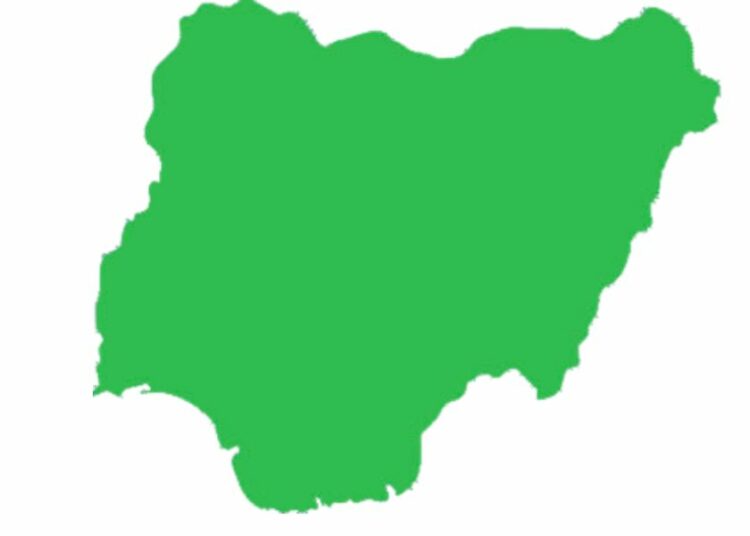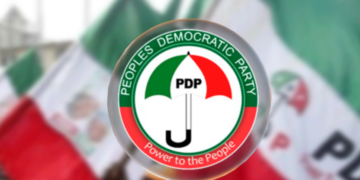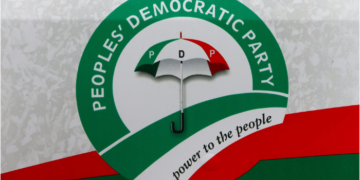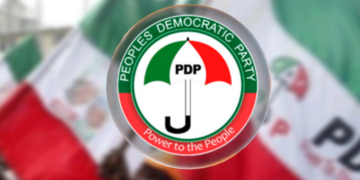The Swiss government has joined in the advocacy for women inclusion and participation in politics ahead of the Nigeria’s 2027 general election.
Women inclusion and participation in politics in Nigeria is yet to reach the desirable level despite constituting nearly half (49.3 percent) of the population of about 220 million people as as only a few of them occupy elected positions in the legislature and executive.
In the current 10th National Assembly, only 19 out of 469 legislators are women (3.8 percent)
with only 15 out of 360 members in the House of Representatives and only 4 out of 109 in the Senate while in the State Houses of Assembly (out of 991 seats) only 45 are occupied by women, representing 4.5 percent.
Across all 36 states, there is no single female governor but only seven deputy governors, namely Noimot Salako-Oyedele (Ogun), Akon Eyakenyi (Akwa Ibom), Kaletapwa George Farauta (Adamawa), Monisade Christiana Afuye (Ekiti), Hadiza Sabuwa Balarabe (Kaduna), Josephine Chundung Piyo (Plateau) and Ngozi Nma Odu (Rivers), now suspended.
To address this anomaly, a three-year initiative funded by the Swiss Federal Department of Foreign Affairs, the Shehu Musa Yar’Adua Foundation in partnership with Partners West Africa-Nigeria (PWAN) has been floated to systematically dismantle the barriers that have kept Nigerian women on the periphery of political power for decades.
The project, titled “Promoting Effective Participation of Women in Governance & Combating Gender-Based Violence in Nigeria,” is a comprehensive approach that tackles both the symptoms and root causes of women’s political exclusion.
The project has been experimented in state of Kano which according to the organisers is both strategic and symbolic because if meaningful change in women’s political participation could take root in Nigeria’s most conservative northern state, it could flourish anywhere.
Public policy forum, another facet of the Swiss-funded project, has featured the premiere of “Double Minority – a documentary by Kadaria Ahmed.’
To kick off the Swiss-funded public policy forum, and as a prelude to the screening of the documentary, Tunde Ajala, Senior Political and Economic Specialist of the Embassy of Switzerland, reeled out some facts which illustrated the inadequate inclusion of women in political leadership and governance in Nigeria.
He also stressed the urgent need for Nigeria as the Giant of Africa to be the exemplar in women’s inclusion in this regard.
The documentary chronicled the political journeys of some brave Nigeria women and provided a fitting celebration and illustration of the ongoing quest to enhance women’s inclusion in governance in Nigeria.
It also highlighted the complex barriers they face at the intersection of gender and politics. Through their personal narratives, Double Minority revealed the systemic obstacles to women’s political and leadership aspirations and celebrates the remarkable resilience they exhibited towards surmounting the obstacles.
The screening of the movie was followed by an engaging and animated interactive session in continuation of the public policy forum.
Also, when the project teams visited the Kano State Ministry of Women Affairs recently, the Commissioner, Hajiya Amina Abdullahi expressed concern for women’s rights to be reflected in a broader institutional transformation.
The team equally held conversations with grassroots organisations like the Women, Peace and Security Network which revealed both persistent challenges and emerging opportunities that define the struggle.
Network members spoke about husbands discouraging wives from political involvement, tokenistic appointments that provide titles without power, and the troubling phenomenon of women voters failing to support female candidates despite forming the electoral majority.
Yet these same conversations revealed innovative strategies perfectly aligned with the project’s objectives: leveraging UN Resolution 1325 to advance gender inclusion, engaging religious leaders through the Council of Ulama to secure faith-based endorsement for women’s political participation, and strengthening grassroots women’s organizations across all 44 Local Government Areas of Kano State.
The most striking evidence of the project’s success lies in the remarkable increase in women holding government and political positions in Kano state such as the appointment of Hon. Justice Dije Abdu Aboki as the first female Chief Judge.
This achievement was followed by a surge in female High Court judges and magistrates, signaling a systematic shift in judicial representation. The executive branch witnessed equally significant developments. Perhaps most symbolically, Kano witnessed the appointment of its first female caretaker local government chairperson from Wudil LGA, a position that brings women’s leadership directly to the grassroots level.
These appointments reflected a fundamental shift in how political leadership is conceptualized in Nigeria’s most conservative northern state. When women occupy positions of real authority, from the Chief Judge’s chambers to local government chairperson offices, they reshape institutional culture and create pathways for other women to follow.
The Swiss-funded project has achieved something remarkable in Nigerian development work: measurable policy impact that extends from grassroots advocacy to structural institutional change. When the Kano State Government established a Constitutional Amendment Hearing Committee under Governor Abba Kabir Yusuf, the project team submitted a detailed memorandum calling for reserved seats to increase women’s representation in governance and successfully defended these recommendations before the panel.
This policy engagement catalysed increased political will for GBV prevention programs, with ongoing discussions between the Foundation and the Ministry of Women Affairs and Social Development resulting in enhanced funding for sensitization campaigns, education on women’s rights, and support services for survivors of violence. Perhaps most significantly, the project systematically addressed cultural and social barriers that traditionally prevented women from participating in peace processes through strategic engagement with the Council of Ulama, Christian Association of Nigeria, and Kano Emirate Council.
As communities across the country confront various forms of violence, from insurgency in the Northeast to banditry in the Northwest, communal conflicts in the Middle Belt, and urban crime in major cities, the exclusion of women from peace and security processes represents both injustice and strategic error.
Female leaders are now actively participating in community mediation processes, and peacebuilding dialogues. Their involvement has enhanced the cultural sensitivity and effectiveness of these interventions, while collaborative structures between male allies and women’s groups have resulted in more inclusive and sustainable approaches to conflict prevention.
Rather than demanding immediate, quantifiable results, Swiss funding has enabled the kind of patient, multi-faceted engagement that addresses root causes rather than merely symptoms. This strategic patience proves particularly valuable in contexts like northern Nigeria, where rapid social change can provoke backlash and undermine long-term progress.
By working through respected local institutions like the Yar’Adua Foundation and engaging traditional authorities as partners rather than obstacles, the Swiss-funded approach has achieved buy-in from stakeholders who might otherwise resist externally imposed changes.
As Nigeria approaches another election cycle, the work supported by Swiss funding offers hope that the next generation of leaders will better reflect the country’s full human potential. In a nation where women constitute half the population but hold less than 10% of political positions, transformation can not come soon enough.
Through patient advocacy, strategic engagement, and sustained commitment, the Swiss-funded project is proving that even the most entrenched barriers to women’s political participation can be overcome.
The Swiss-funded project’s success in breaking down barriers to women’s political participation represents not just progress for gender equality, but advancement for democracy itself. The project offers more than hope for women’s increased political participation; it provides a roadmap for democratic renewal.











